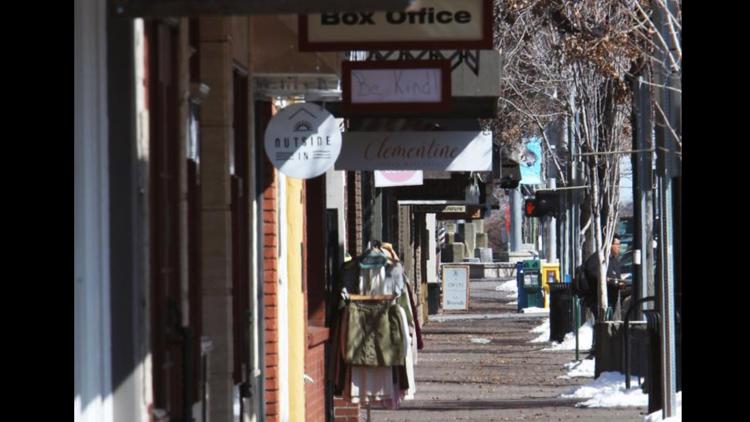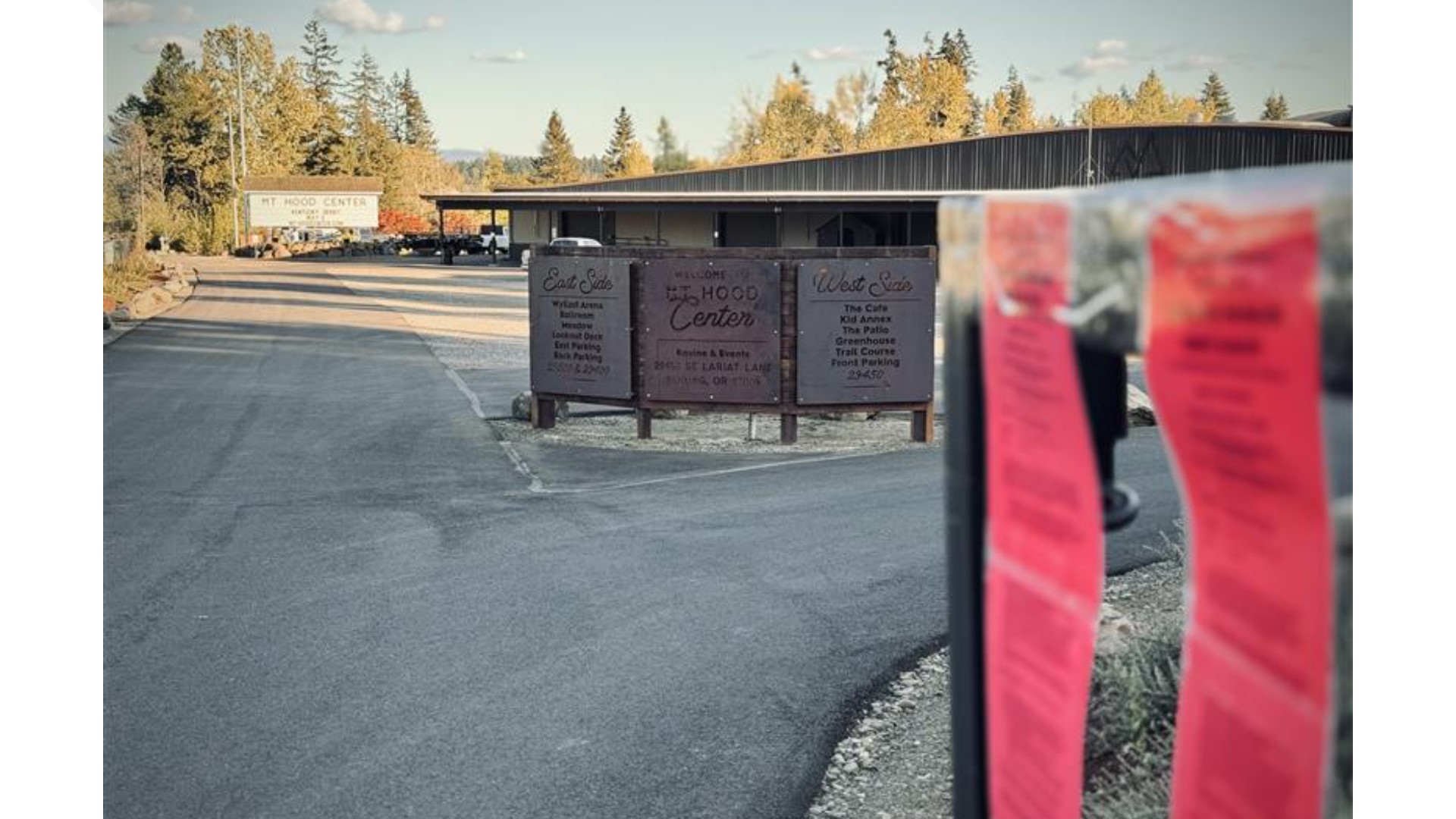BEND, Ore. — Kim Vu normally spends her weekdays overseeing operations at her small nail salon in Bend. But this week she was just cleaning up and trying to keep her kids busy. Her business was forced to shutter Monday as part of state-mandated measures to keep Oregonians apart and stop the spread of the novel coronavirus.
Vu, who owns Pro Solar Nails and has four employees, is worried that her business may not survive the closure if it’s extended more than a few weeks. Rent and bills need to be paid, and that’s a challenge when the doors are locked.
“I am kind of worried because we have no income," said Vu. "Even though we are closed, we still have to pay the rent. We are worried because rent is expensive.”
Vu is one of many small-business owners in Central Oregon — and nationwide — facing an uncertain future as government officials struggle to slow the spread of the contagious and potentially fatal COVID-19. Without a lot of cash reserves or help from landlords or the government, many may not survive.
The closure mandate, ordered Monday by Oregon Gov. Kate Brown, came a week after a ban on customers sitting down in restaurants and bars. The mandate closed more shops and businesses, a necessary step many say to fight the COVID-19 pandemic, but one that hurts an economy already reeling from the cancellation of numerous events, concerts and shows.
Brown’s latest decree affects a specific category of businesses for which close personal contact is difficult to avoid. This includes gyms and fitness studios, theaters, arcades, hair salons, barbershops, yoga studios and nail salons like Vu's.
Damon Runberg, Oregon Employment Department regional economist, said there are roughly 25,000 businesses statewide affected by the governor’s restrictions. Those businesses accounted for roughly 369,000 jobs last year, which is about 22% of total private employment. Around 15,000 of those jobs are located in Central Oregon.
“Not all those businesses that had restrictions placed on them will be closed completely,” said Runberg. “For instance, restaurants that began operating a takeout service retained 10% to 15% of their workforce. We can call those 369,000 susceptible to layoff, but we won’t see all those jobs lost.”
COVID-19 has infected 209 people and killed eight in Oregon as of Tuesday morning. Ten of the positive cases are in Deschutes County.
The crisis could not have come at a worse time for Scott Ramsay, president of the family-owned Sun Mountain Fun Center. Normally spring break would be one of the busiest weeks of the year for the entertainment center.
Ramsay said he is still paying staff and trying to keep the checks going, but there is a limit to how long that can last. He said the doors can stay shut for up to 60 days before a “panic situation” would start to set in.
“It’s very trying for us. The most frustrating thing for us is the uncertainty over how long this will last, how to plan and how to retain our staff allegiance,” said Ramsay
Ramsay said it will be difficult to continue to pay workers for more than a month without any revenue stream. For now he is focused on all types of cost-saving measures, such as keeping the lights off and canceling garbage services.
“You have to minimize the bills from piling up. Outside of that there is not much we can do,” said Ramsay. “We still have to make loan and rent payments, so the money is still going out.”
Even if Sun Mountain’s doors can open within a month or two, Ramsay worries that the overall economy will be so hard hit that regular patrons won’t be in a great position to spend precious resources on entertainment.
“A lot of our customer base will feel pretty thin for a while. They will also be trying to buy food and pay rent and their disposable income will be limited for a number of months after this,” said Ramsay. “We’ll have to make a long term adjustment.”
Some businesses are trying to adapt to the restrictions and closures. Sekse Fit, a pole dancing studio, is offering live streaming workouts for customers to do at home, to promote both fitness and personal connections during an unprecedented time of social distancing.
Jim Bendis, the owner of Bend Distillery, said his company is adapting by only allowing one customer at a time to enter his shops to make alcohol purchases.
“It’s a safe way to get your alcohol,” said Bendis. “We are doing way less than what we were doing, but we want to stay open to keep our employees employed.”
Bend Distillery will also provide containers of hand sanitizer free of charge at the company’s tasting rooms in Bend and Tumalo.
Developer Bill Smith, whose properties include the Old Mill District, said the situation around novel coronavirus changes too rapidly to make accurate predictions, but thinks that the shutdowns could be in place until at least May.
Smith said he is contacting shops and businesses in the Old Mill and working with some “on a select basis to weather the storm.”
“The mood is we will all get through it,” said Smith of his tenants. “People are trying to remain positive."
Meanwhile, Vu — in business in Bend for 10 years — said with her nail salon shut, the schools closed, and entertainment facilities also not working, she is simply trying to keep her two kids occupied at home.
“We stay in the house, clean up and do what we can to keep everybody busy,” she said.
Editor's Note: Bill Smith is an investor in The Bulletin.
Reporter: 541-617-7818, mkohn@bendbulletin.com
This article was originally published by The Bulletin, one of more than a dozen news organizations throughout the state sharing their coverage of the novel coronavirus outbreak to help inform Oregonians about this evolving heath issue.



